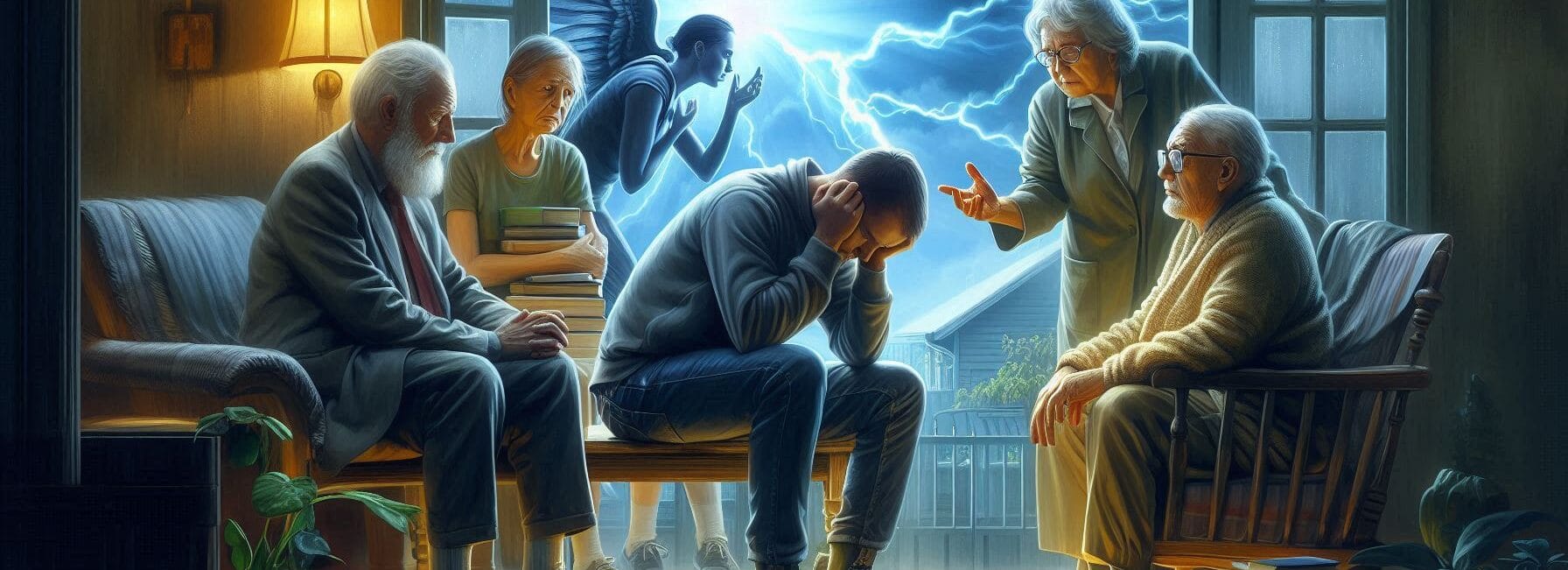Ah, loneliness. It sneaks up on you like a cat at 3 AM, ready to pounce when you least expect it. One minute you’re happily scrolling through social media, and the next, you’re wondering if your only friend is the pizza delivery guy who knows your order by heart.
But seriously, loneliness isn’t just an annoying feeling; it can have some serious effects on mental health that we need to unpack—preferably while sitting in our pajamas with a pint of ice cream.
Top Takeaways and Key Concepts
- Recognize loneliness as emotional or social to understand its source.
- Acknowledge that chronic loneliness can harm mental health, causing anxiety or depression.
- Be aware that prolonged loneliness negatively impacts physical health, including stress and immunity.
- Combat isolation by reaching out to friends, joining interest-based groups, or social clubs.
- Embrace solitude for self-reflection, creativity, and seek professional help if needed.
The text explains that loneliness is a complex emotional state with both mental and physical health consequences. It distinguishes between emotional loneliness, from lacking close relationships, and social loneliness, from lacking broader networks, emphasizing that chronic isolation can lead to anxiety, depression, and increased stress on the body. Effective strategies include actively reaching out to friends, joining interest-based communities, and engaging in meaningful social interactions. The article also highlights that solitude can be rejuvenating, providing space for creativity and self-reflection. Importantly, seeking professional support is advised when loneliness becomes overwhelming or contributes to mental health struggles.
What Is Loneliness Anyway?
Please Note: This post may contain affiliate links. If you click one of them, we may receive a commission at no extra cost to you. As an Amazon Associate, I earn from qualifying purchases.

Let’s kick things off with a little definition. Loneliness is that uncomfortable feeling when you’re surrounded by people but still feel utterly alone—like being at a party where everyone else seems to be having fun while you’re trying to figure out how to blend into the wallpaper.
This emotional state can arise from various situations: moving to a new city, losing touch with friends, or even just binge-watching too many shows without human interaction (yes, Netflix can be both a friend and foe).
Interestingly enough, there are two types of loneliness: emotional and social. Emotional loneliness occurs when we lack close relationships—think about those times you wish someone would text back instead of leaving you hanging like last week’s laundry.
Social loneliness refers to lacking a broader social network; maybe your friends all moved away or got busy with their lives (how dare they!). Both forms can make us feel like we’re stuck in quicksand without anyone around to throw us a rope.
The Impact on Mental Health
By the way, did you know that loneliness has been linked to several mental health issues? Yep! Studies show that chronic loneliness can lead to anxiety and depression faster than I can finish off a bag of chips during movie night.
When we feel lonely for extended periods, our brains start sending out distress signals as if we were living in an action movie filled with dramatic music and slow-motion shots.
In fact, research suggests that loneliness activates the same parts of our brain associated with physical pain. Yes, folks! That means feeling lonely can hurt just as much as stubbing your toe on the coffee table (and let me tell you—that’s no walk in the park).
So why does this happen? Well, when we experience loneliness consistently, it leads us down a dark path where negative thoughts flourish like weeds in an unkempt garden.
How Loneliness Affects Physical Health
Honestly, it’s not just our minds that take a hit; loneliness affects our bodies too! Studies have shown that lonely individuals often have higher levels of stress hormones and inflammation in their systems—basically making them feel crummy both mentally and physically.
This is particularly unfair because nobody wants their body staging protests alongside their emotions!
Interestingly enough, prolonged feelings of isolation are linked to various health problems such as heart disease and weakened immune function (as if adulting wasn’t hard enough already).
It’s almost like being lonely gives your body permission to throw itself into chaos—a real party pooper move!
Breaking Free from Isolation
Let’s see what we can do about this pesky problem called loneliness. First off: reach out! You might think everyone is too busy for you (newsflash: they probably aren’t), so don’t hesitate to send that text or make that call.
Sometimes all it takes is one friendly nudge—a simple “Hey! Wanna grab coffee?” could save someone from spiraling into their own sad Netflix marathon.
Another option? Join groups or clubs based on interests—whether it’s painting ceramics or discussing conspiracy theories about squirrels taking over the world (seriously…have you seen those guys?).
Meeting people who share common interests makes connecting easier than trying to explain quantum physics at a dinner party.
Finding Comfort in Solitude
On the other hand, solitude doesn’t always equal loneliness—it can also be rejuvenating! Embracing time alone allows us space for self-reflection and creativity. I mean really—who hasn’t come up with their best ideas while lying on the couch staring blankly at nothing?
Plus there’s something magical about spending time doing absolutely nothing without any pressure from society telling us otherwise.
I once spent an entire Saturday perfecting my pancake-flipping technique while wearing pajamas—and guess what?
I felt amazing afterward! So finding joy within yourself doesn’t require constant companionship; sometimes all it takes is recognizing how great your own company can be.
Seeking Help When Needed
Finally—and this part is crucial—if feelings of loneliness become overwhelming or lead down darker paths like depression or anxiety (cue ominous music), don’t hesitate to seek professional help!
Therapy isn’t just for those experiencing life crises; it’s also beneficial for anyone navigating tricky emotions—even if they stem from simply feeling isolated.
Talking things through helps put everything into perspective while offering coping strategies tailored specifically for YOU—not some cookie-cutter solution pulled straight out of an instruction manual written by aliens (which might actually exist).
Suggested Resources:
Understanding Loneliness
https://www.apa.org/monitor/2020/01/cover-loneliness
The Relationship Between Loneliness and Mental Health
https://www.ncbi.nlm.nih.gov/pmc/articles/PMC5571142/
Coping Strategies for Loneliness
https://www.psychologytoday.com/us/blog/the-moment-youth/201812/coping-strategies-loneliness
Frequently Asked Questions
What is loneliness and how does it differ from being alone?
Loneliness is the feeling of being disconnected even when people are around, while being alone simply means physical solitude without necessarily feeling isolated.
What are the two types of loneliness?
Emotional loneliness comes from lacking close, meaningful relationships, while social loneliness comes from lacking a broader network or community.
How does chronic loneliness affect mental health?
Long-term loneliness can increase the risk of anxiety, depression, and negative thinking patterns, affecting emotional well-being.
Can loneliness impact physical health?
Yes. Prolonged loneliness can raise stress levels, weaken the immune system, and contribute to physical health issues over time.
What are effective ways to reduce feelings of loneliness?
Reaching out to friends, joining groups based on shared interests, and seeking supportive social interactions can help reduce isolation.
Is solitude ever beneficial for mental health?
Solitude can encourage creativity, self-reflection, and relaxation when it is chosen intentionally rather than driven by isolation.
When should someone seek professional help for loneliness?
If loneliness becomes overwhelming, leads to depression or anxiety, or interferes with daily life, professional mental health support is recommended.

Kevin Collier is a passionate mental health advocate and writer for SadFAQ.com, where he explores the complexities of depression and mental well-being. With a deep understanding of mental health challenges, Kevin provides compassionate insights and practical advice to help individuals navigate their journeys toward healing. His articles aim to destigmatize mental health issues, offering support and resources for those seeking to improve their emotional resilience. Committed to raising awareness and fostering open conversations, Kevin’s work empowers readers to prioritize their mental health and seek the support they deserve.




